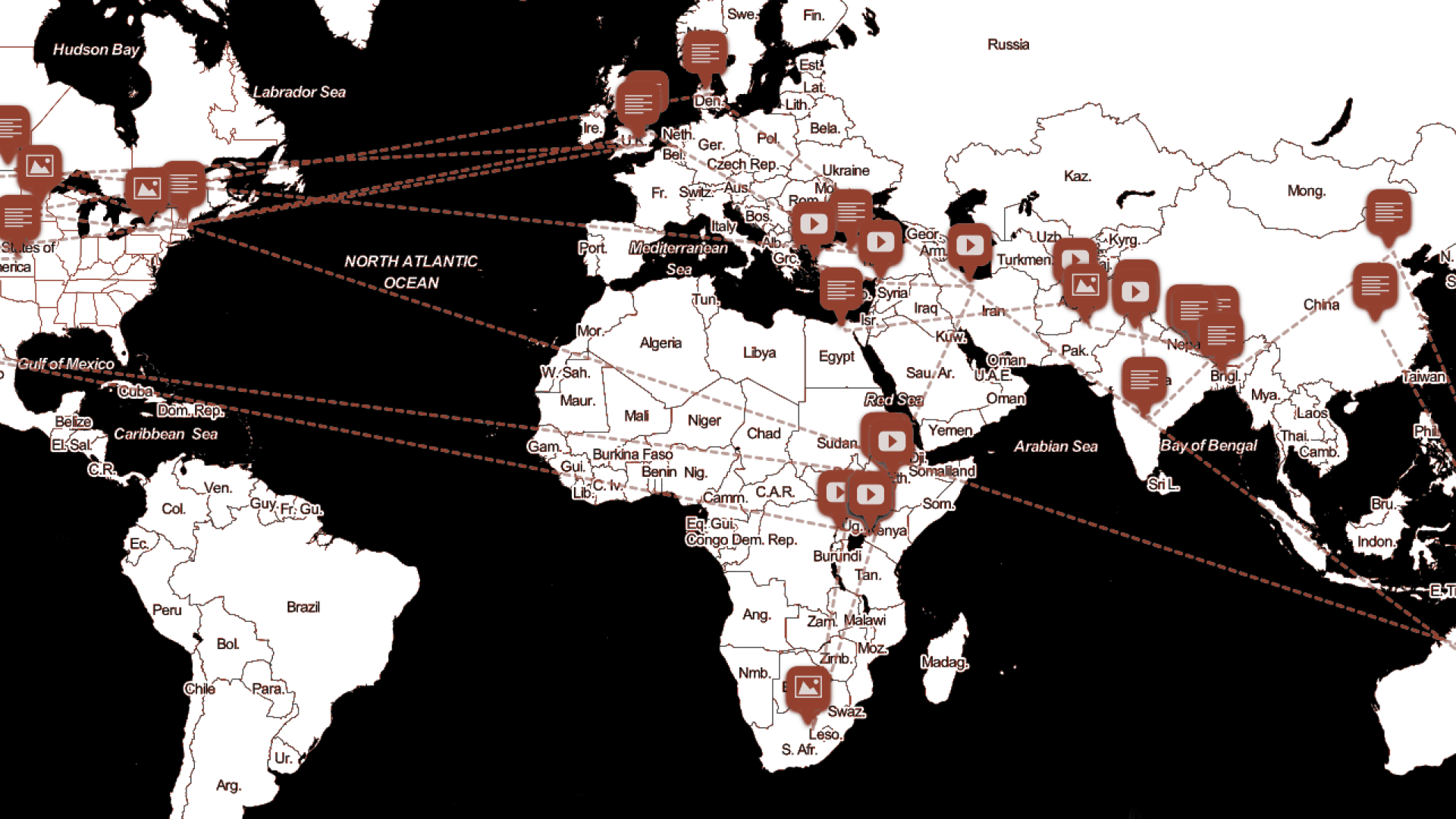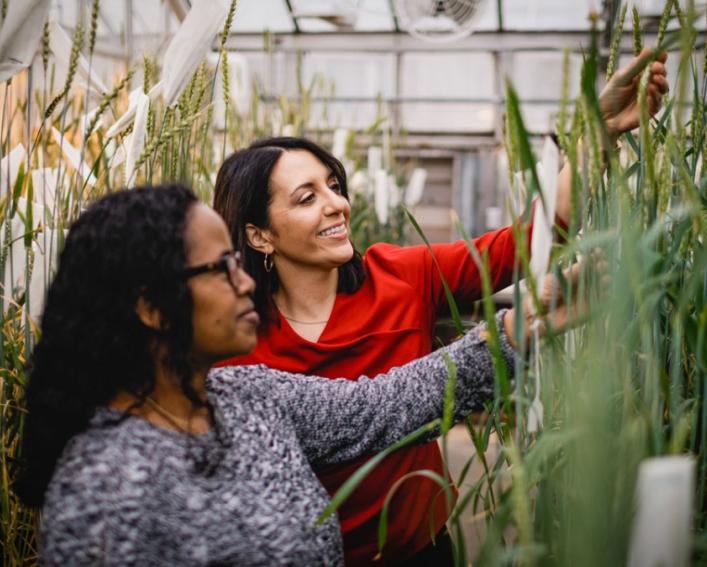An international community of hunger fighters called the Borlaug Global Rust Initiative (BGRI) joined forces starting in 2005 to confront climate change and diseases that threatened wheat — one of the world’s most important crops.
For 15 years the BGRI has continued to pioneer innovative ways for scientists and smallholder farmers from across the globe to collaborate on solutions to challenges of rust diseases and rapidly changing environments. Now those efforts are documented in the interactive BGRI story map “Inside the Global Network Safeguarding the World’s Wheat from Disease and Climate Change,” highlighting efforts to introduce climate-resilient, disease-resistant wheat to resource-constrained wheat-growing regions of the world, especially sub-Saharan Africa and South Asia.
“Humanity depends on wheat perhaps more than any other food, and we must never forget just how vulnerable we are to the disease, drought, floods and more that continually assail this essential crop,” said Ronnie Coffman, vice chair of the BGRI, director of International Programs and international professor in the Department of Global Development at Cornell University. “Collaborative initiatives like the BGRI that involve scientists and end users are the way of the future in fighting all kinds of epidemics and pandemics that threaten world health.”
The BGRI community infused resilience into wheat and largely staved off large-scale rust epidemics in East Africa, South Asia and other important bread baskets of the world. Through the BGRI, scientists from more than 22 national and international agricultural research centers have built improved breeding pipelines, pathogen surveillance networks and germplasm testing nurseries in countries around the world while conserving genetic resources and training up-and-coming scientists to protect wheat — a staple that provides nearly 20% of the world’s protein and calories.
“The BGRI redefined how researchers and farmers can come together globally to save wheat — or any of the world’s important crops,” said map producers Linda McCandless, associate director for communications for the BGRI, and Chris Knight, cinematographer for the BGRI and Global Development. “The BGRI story map documents that incredible work and is intended to inform future initiatives and be a resource for years to come.”
Arranged geographically, the multi-media map highlights work undertaken by scientists on the front lines of the Durable Rust Resistance in Wheat (DRRW) and Delivering Genetic Gain in Wheat (DGGW) projects. Through videos, photos, interviews, journal articles, news stories and more, the story map explores the multifaceted scientific work from contributors in Mexico, Kenya, Ethiopia, Nepal, India, Australia, Canada, China, the United Kingdom, the United States, Russia and more.
The DRRW and DGGW projects received funding from the Bill & Melinda Gates Foundation, the UK Foreign, Commonwealth and Development Office, national research institutes, and Cornell University.






